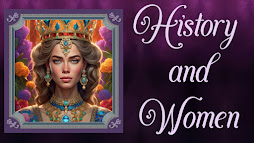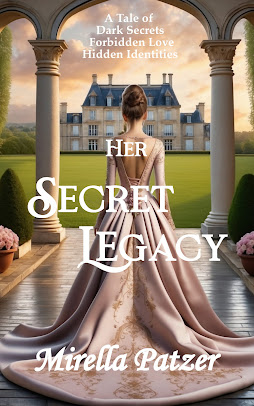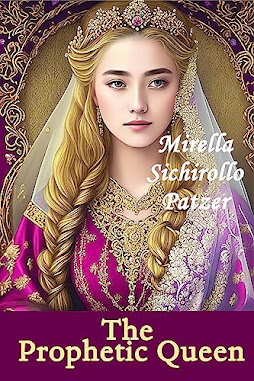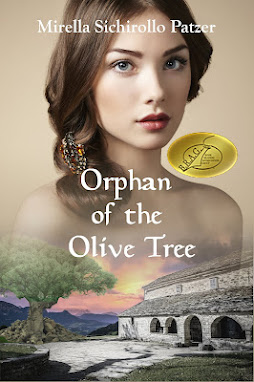Ancient History
Esther
Why Esther is One of the Great Women of the Bible
Author
In the modern world, we often feel that we are on the vanguard of the emerging role of women in business, economics, and politics. But powerful women have always been a part of history. In fact, the Bible tells the story of a woman who played world politics and outfoxed a dangerous rival in the Book of Esther.
Esther became a queen by a series of unexpected events. Theologians will tell you that the book of Esther was written in part to demonstrate the fact that there are no coincidences, because a divine hand guides all events.
Here, Esther was a orphaned Jewish girl who was growing up in the care of her older cousin and guardian, Mordecai, who despite his Jewish faith held a prominent position at the king's court. These were the days of the Jewish exile when Jews had been dispersed to different parts of the world. Persia was a rich and powerful nation, but one that had its share of Antisemitism.
There is no evidence that Esther and Mordecai were particularly devout Jews. In fact, when Esther was selected to be placed in the king's harem, her cousin advised her to conceal the fact that she was Jew. She must have been very successful at it because no one guessed her ancestry or faith.
Esther was part of a large round-up of pretty young girls for the king's harem. The harem at the palace in Susa was a special sumptuous area of the palace where the women at court resided. Young virginal girls lived in the first harem, where they were groomed (literally) for many months in preparation for their night with the king.
Once a woman had been with the king, she was moved into the second harem. After that, she was only brought out again if she was summoned to the king by name. With hundreds of women in the harem, many women lived out long, lonely lives in the isolation of the second harem with no real husband, no children, and no companionship apart from the other females.
After six months of preparation, Esther had her turn with the king. He was so taken with her, he married her (elevating her from a concubine to queen). But after a while, he forgot about Esther and did not summon her very often.
By the way, the king in the Bible story is Xerxes, a figure well known to ancient historians. The book of Esther is set around the time that King Xerxes planned an invasion of Greece (which failed miserably).
According to the book of Esther, an ambitious Antisemite at court got mad at her cousin Mordecai and tricked the king into signing an edict to kill of the Jews. Although troubled by the genocidal edict, it seems Esther at first did not really know what to do. Some theologians wonder if she might have thought she could escape, since no one knew she was Jewish in the first place. However, her cousin Mordecai urged her to go to the king (which could have gotten her into terrible trouble, even had her executed) and arrange a way to save the Jews.
When Esther finally made the tough decision to act rather than observe in history, she vowed to leave the harem to approach the king. By law, anyone approaching the king without a specific invitation could be executed on the spot. However, Esther could not wait in the harem until the king called for her again. She had to take the risk.
Mordecai suggested this was her destiny, saying that she was called to the kingdom "for such a time as this."
Esther resolved to risk perfunctory execution with her very famous line. Saying she would go to the king, she told Mordecai, "And if I perish, I perish!"
The story is a lot more complicated than it first appears. The law in Persia at that time expressly forbade a royal edict from being reversed, even by the king himself. In a clever series of moves involving a couple of banquets and an appeal to her enemy's enormous ego and personal pride, Esther exposed the plot to her husband who then has Haman executed.
Esther revealed that she was Jewish. Most important of all, Queen Esther had worked out a very clever way that the edict could stand and yet the Jewish nation would survive. She dispatched her enemy and won the admiration of her husband, the king, all while saving her people.
The great beauty of the book of Esther is that she progresses from a terrified teenager to a world political figure in a series of carefully executed moves.
Like many other historical figures (men and women), Esther always capitalized on the fact that her enemies underestimated her.
But far from being a fiendish mastermind, Esther was actually a gracious woman. She was kind to her husband, even when he acted like a dolt. She was an astute observer of human nature, which is why she knew how effective flattery would be on her enemy, Haman. She also studied life at court, which is why her banquets were the perfect backdrop for her plan.
Most of all, Esther was brave, even more courageous than her husband who led the Persian army on many battlefields. After having dutifully concealed her Jewish heritage for years, Esther chose to reveal it to her husband and enemy at the very moment when it was most dangerous to her personally but most effective to help the Jewish people.
In Esther, we see how an ordinary girl, propelled by God and fate into extraordinary circumstances, emerged victorious by taking a series of difficult steps.
Some theologians have trouble with the book of Esther because it is the only book of the Bible that fails to mention God. There is no direct mention of Him, not even once. Yet commentators argue that the genius of the book of Esther is that God does not have to be mentioned to be evident and obvious. In a stunning series of coincidences and chance encounters, God's plan and intervention are clear.
The story of Esther is celebrated by Jewish people in the holiday known as Purim, which occurs in the spring.
Article Source: http://www.articlesbase.com/religion-articles/why-esther-is-one-of-the-great-women-of-the-bible-475734.html
About the Author
For more resources on one of the Bible's great stories about a heroic woman, visit http://www.EstheroftheBible.com .























Post a Comment
3 Comments
Have a wonderful Easter!
Margaret
btw - I am three chapters in to The Midwife of Venice. Enjoying it so far. xx